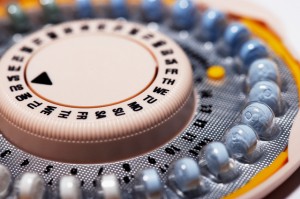
 In my last post I described a story that appeared in The Lancet: A woman with many risk factors for a life-threatening blood clot developed a clot, a deep vein thrombosis (DVT). In addition to her many risk factors, she had been eating grapefruit for the previous three days. Here’s how the media covered the story.
In my last post I described a story that appeared in The Lancet: A woman with many risk factors for a life-threatening blood clot developed a clot, a deep vein thrombosis (DVT). In addition to her many risk factors, she had been eating grapefruit for the previous three days. Here’s how the media covered the story.
The most responsible headlines
I collected the available news stories on this incident from Google News in early April. All but one featured grapefruit, which is, after all, the only thing that makes this story newsworthy. Here are the most responsible headlines:
“Grapefruit, birth control pill interaction may have caused weird blood clot case” (The Canadian Press)
“Grapefruit May Have Raised Blood Clot Risk in Unusual Case” (Medical News Today)
“Grapefruit Breakfast Shares Blame in Leg Thrombosis” (Modern Medicine)
“Hunt for DVT Cause Reveals Link to Grapefruit” (Medpage Today)
“All things in moderation” (phillyBurbs.com)
The Canadian Press, which did follow-up interviews, and Forbes.com had the best coverage. Forbes had an unfortunate headline: “Grapefruit-Heavy Diet Helped Spur Dangerous Clot.” The diet wasn’t grapefruit heavy. As I’ve mentioned before, journalists are often not allowed to write their own headlines. The subhead was much better: “The fruit, combined with contraceptive pill and a genetic mutation, almost cost woman her leg, doctors say.”
The Forbes article was extremely well balanced. For example:
So it was the combination of grapefruit juice, the estrogen in the birth control pill, the clot-inducing mutation and just sitting in the car in a position that narrowed the blood vessel, that threatened amputation of the leg… This means there is no great lesson for people in general from the episode.
It’s not fair to blame the grapefruit for the woman’s problem, said Dr. Alan Blum, a professor of family medicine at the University of Alabama. The effects of the long auto trip she took and the oral contraceptive she was taking would be “far greater risks for a deep vein thrombosis than a total of three grapefruits over three days,” Blum said.
“The bottom line is that grapefruit remains a healthful, I’d even call it essential, food for the vast majority of people,” he said. “The scary message from this case report, if widely disseminated, will do far more harm than good to public health.”
Several articles, whether they were accurate or not, used the story as a “teachable moment” to remind readers that grapefruit can interact with some medications. Here’s a page from the Mayo Clinic that lists grapefruit/drug interactions. It includes the antidepressants Zoloft and BuSpar and the statins Zocor, Mevacor, and Lipitor. It doesn’t list contraceptive pills.
The Canadian Press interviewed the Canadian pharmacologist David Bailey, the man who first noticed the grapefruit/drug interactions. Bailey mentions other fruits with properties similar to grapefruit: Sour oranges (Seville oranges), pomelos (bitter oranges used in marmalade), and limes.
The worst headlines
“Eating Too Much Grapefruit Nearly Killed Woman, Study Finds” (Fox News)
The woman consumed 8 ounces of grapefruit juice a day for three days. That’s not “too much. ” And this was not a study of grapefruit juice, as the headline implies. The article itself, which comes from The Sun, goes on to say: “[G]rapefruit … is known for its fat-burning properties.” That’s totally not true.
“Woman Nearly Loses Leg After Going on Grapefruit Diet” (KSPR, Springfield, MO)
“‘Killer’ grapefruit alert to slimmers” (The Sun, UK)
The worst story was so pathetic I hesitate to criticize. It was from Press TV, which bills itself as the first Iranian international news network. The headline wasn’t TOO bad: “Grapefruit increases blood clot risk.” But it included the following:
A new study … reports that grapefruit can interact with birth control pills, leading to amputation. … According to the study published in The Lancet, a diet rich in grapefruit increases the risk of blood clots because of the fruit’s high estrogen concentration.
Something was undoubtedly lost in translation. The site may be an excellent source of information on Iran, or Iranian propaganda, but it’s obviously not a good place to get your health news.
Is it OK to eat grapefruit?
As several of the better stories pointed out, it’s unwise to do anything in extreme. When part of a balanced diet, grapefruit should not be dangerous. Given increasing evidence of the potency of the grapefruit flavonoid naringin, medical science may want to consider whether women on birth control pills should avoid eating grapefruit every day.
The Florida Department of Citrus made the following statement:
The Lancet report looks to be inconsistent with published scientific studies which indicate grapefruit does not cause a clinically significant interaction with oral contraceptives. We are aware of no validated evidence that grapefruit affects oral contraceptives, and they are generally considered to be safe to consume with grapefruit.
The original Lancet article, by the way, is only available if you have a subscription. I recommend the UK’s National Institute of Health site, Behind the Headlines, for the best analysis of this story.
Related posts:
A matter of taste
How do you taste?
Orange juice and toothpaste
What is a supertaster?
The genetics of supertasting
Are you a supertaster: Do you really want to know?
Are you a supertaster: Look at your tongue
Are you a supertaster: How does PROP Taste to you?
Are you a supertaster: DNA testing
Why do we love high-fat foods?
Do we taste fat?
The taste advantage
“Killer” grapefruit?
This is your brain on sugar — and sugar substitutes
The Pepsi challenge: How beliefs affect what you taste
Resources:
Image source: Pregnant Pause


Sorry, comments are closed for this post.